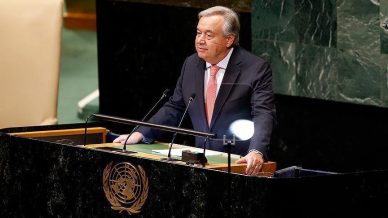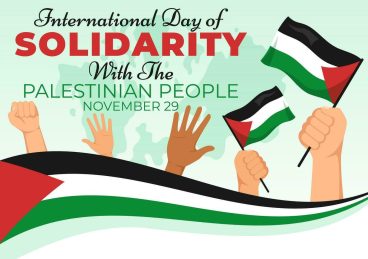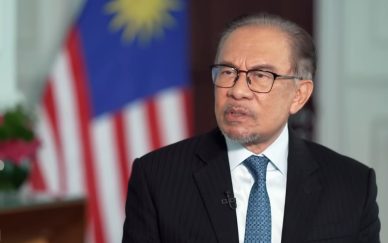Once an Arab university professor timidly asked me this question: Did the Palestinians sell their land and abandoned it to the Jews? He wouldn&rsquot have asked hadn&rsquot we had a strong bond between us and he knew I wouldn&rsquot be embarrassed by the question. As a matter of fact I wasn&rsquot embarrassed however what surprised me was that he was a professor of modern history and among those who prepared the history curricula in his Arab country which included topics about Palestine!! After that I understood that many would like to ask this question but they are embarrassed to do so. I knew then how much the Palestinians -and specialists in the Palestine studies- have failed to explain the issue properly and objectively not only to the world but even to their own people.
Zionist propaganda focuses on the narrative that the Palestinians are the ones who sold their land to the Jews and that the Jews bought it with their money fair and square. Hence the Palestinians thereupon should not reclaim it! Perhaps here we can give a brief idea on the topic.
Palestine: A People Rooted in Their Land:
From its beginnings and since the nineteenth century the Zionist propaganda was based on the idea of &ldquoa land without a people for a people without a land&rdquo considering that there is no people in Palestine and that the Jews who do not own a land have the right to claim this land. However since the first signs of settlement they found it full of vitality and activity where hardworking people live deeply rooted in their land.
According to a frequently repeated anecdote after the Basel Congress held in 1897 the rabbis of Vienna decided to explore Theodor Herzl’s ideas and sent two representatives to Palestine. This fact finding mission resulted in a cable from Palestine in which the two rabbis wrote &ldquoThe bride is beautiful but she is married to another man&rdquo!! That is there are people already living there. The story resembles another commonly repeated anecdote involving Theodor Herzl and his right-hand man Max Nordau. When Nordau first learned that there was a sizable Arab population in Palestine he ran to Herzl crying &ldquoI did not know that. But then we are committing an injustice.&rdquo
An Early Resistance:
Since this project’s beginnings the active Palestinian resistance to Jewish Zionist settlement began i.e. since its early stages in the days of the Ottoman State. In 1886 clashes occurred between the Palestinian peasants and the Jewish settlers and in May 1890 when the Jerusalem’s Administrative Officer (Mutassarrif) Rashad Pasha showed his bias to Zionist Jewish settlers a delegation of Jerusalem dignitaries voiced their objections to him. Then on 24/6/1891 Jerusalem’s dignitaries presented a petition to the Ottoman Grand Vizier (the Prime Minister) demanding a stop the immigration of Russian Jews to Palestine and prohibition of their acquisition of land.
The scholars of Palestine and its representatives to the Ottoman authorities as well as the Palestinian newspapers alerted to the danger of Zionist Jewish settlement and demanded strict measures to confront it. In 1897 Sheikh Muhammad Tahir al-Hussaini the Grand Mufti of Jerusalem headed a local body with governmental powers to audit requests of property transfer at the office of the Mutasarrifate of Jerusalem thus preventing the transfer of many lands to the Jews. Sheikh Suleiman al-Taji al-Faruqi who took part in founding the Ottoman National Party in 1911 played an important role in warning against the Zionist danger and so did Yusuf al-Khalidi Ruhi al-Khalidi Sa&lsquoid al-Hussaini and Najib Nassar.
Although Sultan &lsquoAbdul Hamid and the central authorities issued instructions to resist Jewish immigration and settlement the corruption of the Ottoman administrative apparatus prevented its implementation consequently the Zionists -by paying bribes – were able to purchase a lot of land. Moreover the control of the Union and Progress Party over the Ottoman State its overthrow of Sultan &lsquoAbdul Hamid in 1909 and the great Zionist Jewish influence within had facilitated the Zionist Jews&rsquo acquisition of land and their emigration to Palestine.
By the end of the Ottoman State in 1918 the Jews had acquired about 420 thousand dunams (or 1.5%) of the land of Palestine which they bought mainly from Lebanese feudal landlords most notably the families of Sursock Tayyan Tueni and Medawar or from the Ottoman administration through public auction in which the lands of Palestinian peasants who are unable to pay their taxes are sold or from some Palestinian landlords who belong to feudal families like the Ruk and Kassar families. These purchases covered 93% of the land the Jews acquired. In any case the Zionist threat was not considered serious by the people of Palestine at that time due to the small size of the Jewish settlement and population and that the establishment of a Zionist entity under a Muslim state (the Ottoman State) was practically impossible.
Under the British Occupation and Oppression:
When Palestine came under British occupation 1917&ndash1948 it was clear that it came to implement the Zionist project and establish a national home for the Jews in Palestine. It invested all the powers of colonial rule and oppression to impose this reality. The Palestinian national movement resisted Jewish settlement with all its political media and protest means fought many uprisings and had many confrontations. The total land the Zionist Jews were able to seize during British occupation was about 1.2 million dunam or only 4.5% of Palestine and this was despite the British global capabilities huge capital and under the direct support of the oppressive occupation force.
But wait! Most of these lands were not actually bought from the people of Palestine! Objective facts indicate that most of this land was leaked to the Jews either through British government grants of Palestine’s miri lands &ldquostate lands&rdquo or through major non-Palestinian feudal landlords who resided abroad and were practically and officially prohibited from entering this region (under British occupation) to invest in their land if they really wanted to.
The British authorities granted about 300 thousand dunams of miri lands to the Jews without charge and 200 thousand dunams for a nominal fee. The first British High Commissioner Sir Herbert Samuel (1920&ndash1925) who was a Zionist Jewish granted 175 thousand dunams of the most fertile lands of the state on the coast between Haifa and Caesarea to the Jews. He also gave them massive grants of other coastal lands and in the Negev and on the Dead Sea coast.
There were huge feudal properties for families who acquired these lands particularly in 1869 when the Ottoman State was forced to sell miri lands to rich Lebanese families to provide some money for its treasury and that was another aspect of the tragedy. The feudal landlords from outside Palestine sold a total of 625 thousand dunams the Sursock family sold more than 200 thousand dunams of Marj Ibn &lsquoAmer lands to the Zionists displacing 2746 Arab families from 22 Palestinian villages who have been cultivating these lands for hundreds of years. The tragedy was repeated when other Lebanese feudal landlords sold about 120 thousand dunams around Lake Hula in northern Palestine and two Lebanese families sold the Wadi al-Hawarith lands (32 thousand dunams) thus displacing 15 thousand Palestinians. During the period 1920&ndash1936 the agricultural lands sold by absentee feudal landlords (of Lebanese and Syrian families) reached 55.5% of agricultural lands acquired by the Jews.
Despite the responsibility borne by the families who sold these lands the blame is not entirely on them alone for the British authorities prevented them from entering Palestine to exploit these lands on the pretext that they were foreigners. That was after Palestine was separated from Syria and Lebanon according to the Sykes-Picot divisions between the British and French colonies.
As for the sum of the lands leaked into the hands of the Jews which were sold by the Palestinian Arabs during the British occupation it was about 260 thousand dunams (less than 1%) of the land of Palestine. The Zionist Jews acquired these lands because of the harsh conditions imposed by the British colonial government on the Palestinian peasants and as a result of the British expropriation of Arab property for the benefit of the Jews according to articles of the British Mandate for Palestine which entitle the High Commissioner to this right. Some sales occurred because of the weakness of a number of Palestinians towards financial temptations and this is not surprising such cases are found in every time and place in any Arab or non-Arab country. These were few groups weakened by temptations who were in any case a pariah group fought by the entire people of Palestine. Many of them were boycotted liquidated and assassinated especially during the Arab Revolt that swept Palestine during the 1936&ndash1939 period.
Based on the above the total of what the Jews obtained from the people of Palestine until 1948 does not exceed 1% of the land of Palestine. This happened within seventy years since the beginning of settlement and organized emigration to Palestine and under harsh conditions. Evidently it highlights on one hand the extent that the Jews suffered in stabilizing and making their project in Palestine succeed and on the other hand the extent of the determination of the Palestinians to stick to their land.
Resistance and Steadfastness:
The people of Palestine especially in the 1930s made great efforts to fight the sale of lands and the Supreme Muslim Council chaired by Haj Amin al-Hussaini and the scholars of Palestine had a prominent role in that. For on 25/1/1935 the first Palestine Scholars Conference issued a unanimous fatwa prohibiting the sale of any land of Palestine to Jews declaring the sellers and brokers apostates denying them burial in Muslim cemeteries boycotting them in everything and defaming them.
The scholars launched a major campaign in all cities and villages of Palestine against selling lands to Jews. They held many meetings making people take pledges to hold onto their land and not to overlook any of it thus saving many lands that were threatened with sale. The Supreme Muslim Council bought entire villages such as Deir &lsquoAmr and Zita and the communal land in the villages of Taybeh &lsquoAttil and al-Tira and stopped sales in about sixty Jaffa villages. National institutions were established that contributed to stopping the land sale. A &ldquoNation Fund&rdquo was established and was managed by the Palestinian economist Ahmad Hilmi Pasha who managed to save the lands of al-Butaiha in northeastern Palestine that have an area of 300 thousand dunams. [9]













